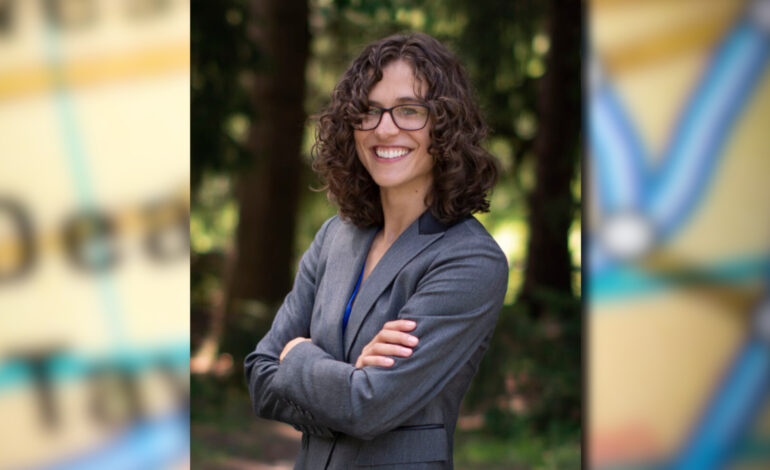DEARBORN — Community member, artist, activist and researcher Elizabeth Bailey has announced her candidacy for the Dearborn Charter Revision Commission.
Residents voted in the Aug. 3 primary for the establishment of a Charter Revision Commission and now will have to select nine commissioners in the Nov. 2 general election.
Bailey’s great grandparents immigrated to Michigan from Poland and worked and lived in Dearborn, where she has now chosen to make her home.
In 2010, Bailey graduated from Wayne State University’s School of Business Management and began her career in AmeriCorps, building volunteer capacity for a nonprofit serving migrant and marginalized youth.
I will fight for a charter that engages Dearborn’s communities as partners in leadership and governance. — Elizabeth Bailey
In the time since, she developed volunteer training programs with national youth-serving organizations while pursuing her education and in 2018, she received her master’s of education and is working towards her Ph.D.
“I believe that education can empower our communities and help us prepare for futures that may feel uncertain,” Bailey said. “I have the background to tackle complex problems through research and collaboration to produce data-driven solutions. I will bring these skills to the Dearborn Charter Commission to build a charter that serves all of our communities.”
Bailey said she is running for the commission because she believes in the power of democracy.
“I will fight for a charter that engages Dearborn’s communities as partners in leadership and governance,” she said. “My vision promotes democratic participation by holding public officials accountable and empowering constituents to engage with their government.”
As a researcher, Bailey said she has the expertise to seek out and identify charter provisions that support civic engagement.
“Meaningful civic participation requires knowledgeable constituents and, as an educator, I understand the structures required to address the instructional challenge,” she said. “As charter commissioners, we must lead with the humility to recognize that we cannot possibly predict the future. Dearborn deserves a charter that addresses our immediate concerns and creates flexibility and community connections to respond to unexpected circumstances.”
Bailey said she believes that the new charter must empower democratic participation and government responsiveness.
“My top three issues on the city’s charter are civic engagement, governmental transparency and accountability of public officials,” she said. “The charter must support constituents to become active participants in city governance. Communities are their own best advocates; advocacy that can be supported or blocked by governmental structures. The charter must provide clear and accessible pathways to civic participation and empower community members to express concerns and seek support.”
Any structures that encourage civic participation must include measures that hold public officials accountable for being responsive to their constituents.
Bailey also said she believes that true accessibility must be proactive.
“The charter must establish standards of outreach that center the information needs of our communities,” she said. “Finally, any structures that encourage civic participation must include measures that hold public officials accountable for being responsive to their constituents. The charter must establish mechanisms of accountability that deter abuses of power and allow the community to respond to harms if they occur.”
If elected, Bailey said her goal is to be a part of creating a charter that will stand the test of time.
“Once ratified, the charter will be in place for over a decade,” she said. “To remain relevant, the charter must require Dearborn’s government to reflect and respond to the evolving needs of Dearborn’s communities. Responsiveness is established through two-way communication between the city government and its constituents. I will fight for a charter that establishes higher standards for representation, outreach and involvement and creates accessible pathways for community members to have their issues addressed by the city.”






Leave a Reply